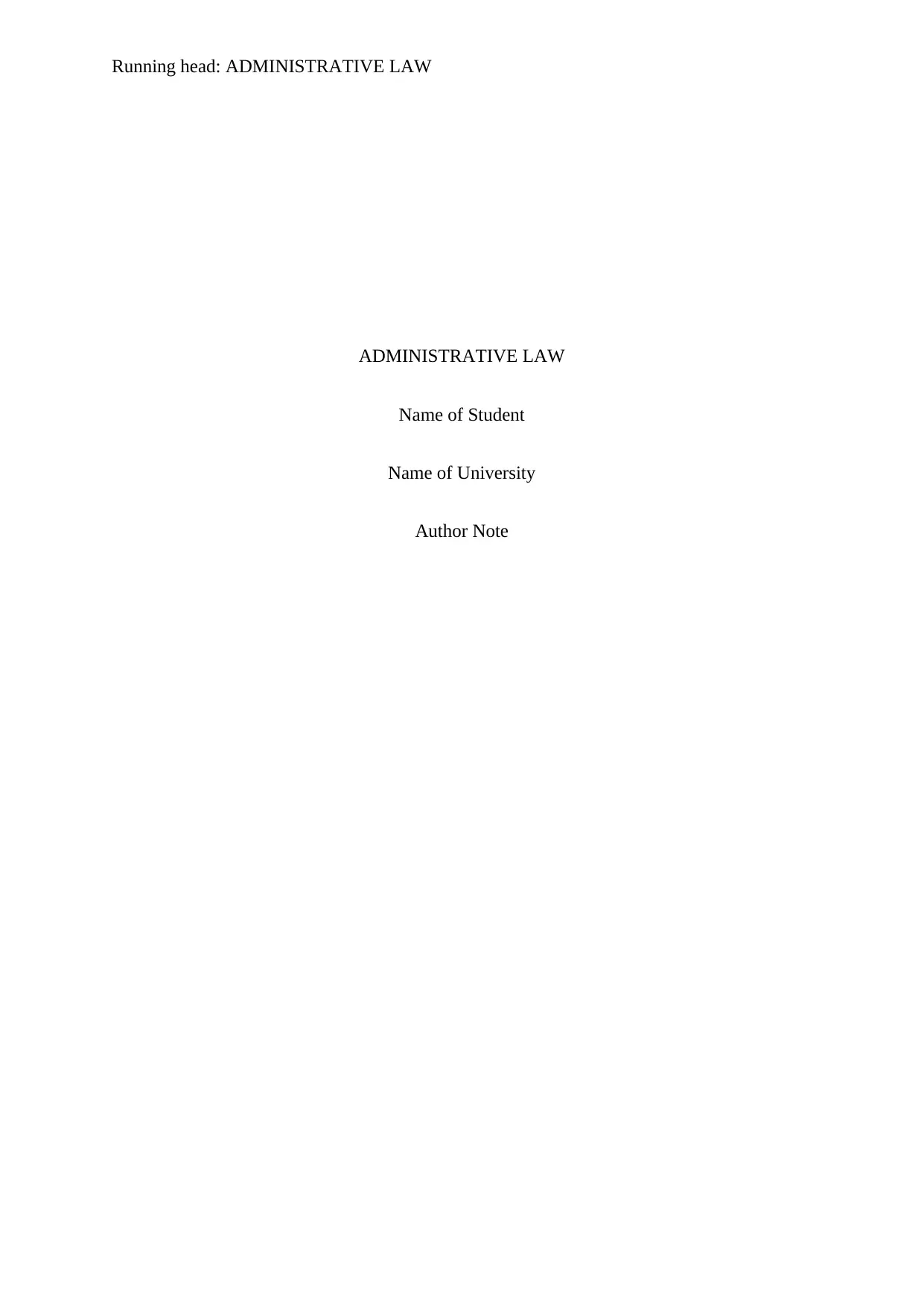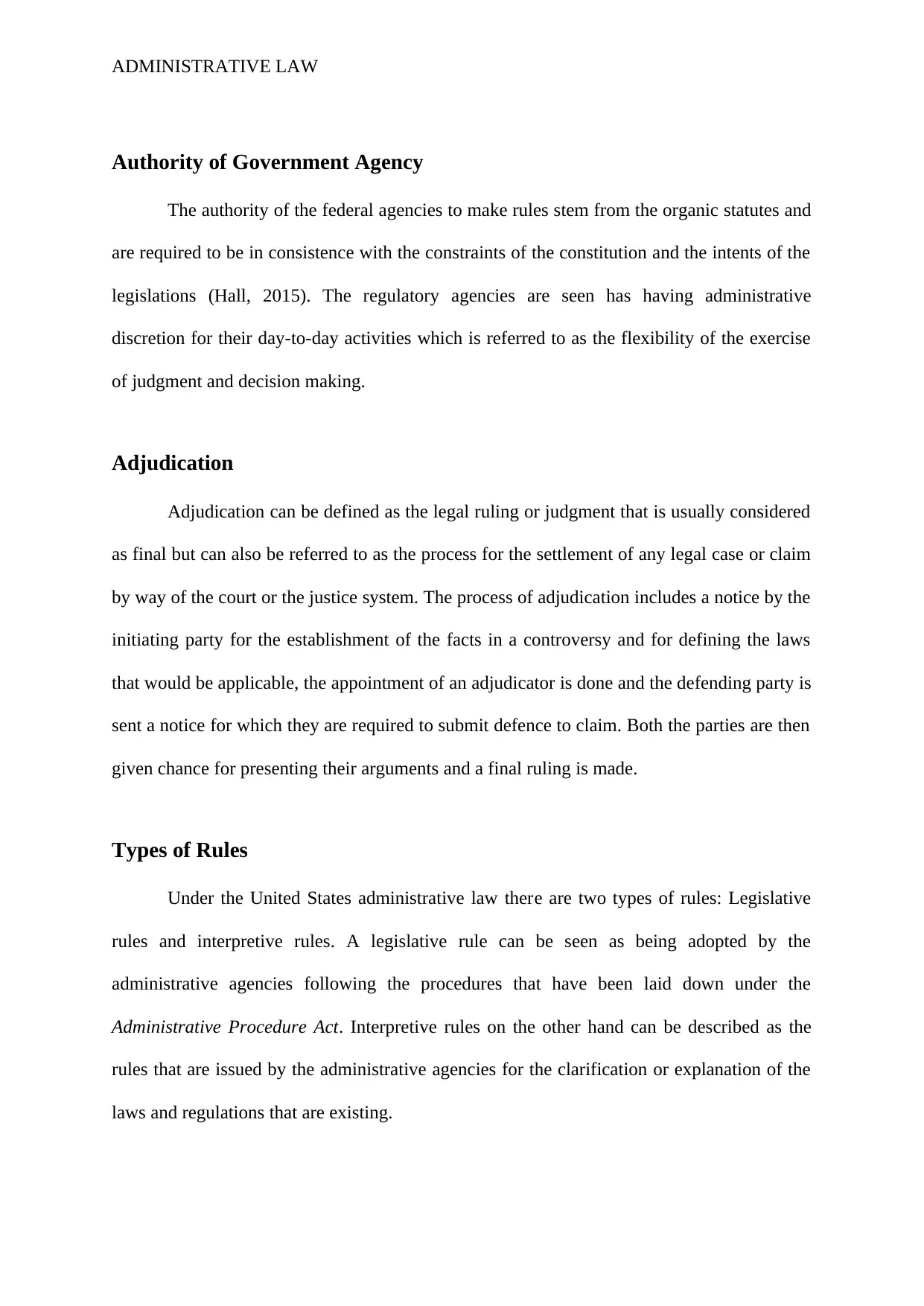Administrative Law: Rules, Adjudication, and Agency Authority
VerifiedAdded on 2022/11/13
|3
|314
|61
Essay
AI Summary
This essay provides an overview of administrative law, focusing on the authority of government agencies to make rules, stemming from organic statutes and constitutional constraints. It defines adjudication as the legal ruling or judgment process for settling legal cases, outlining the steps involved from notice to final ruling. The essay also differentiates between legislative and interpretive rules under United States administrative law, explaining how legislative rules are adopted following the Administrative Procedure Act, while interpretive rules clarify existing laws and regulations. Desklib provides access to similar solved assignments and study tools for students.
1 out of 3









![[object Object]](/_next/static/media/star-bottom.7253800d.svg)